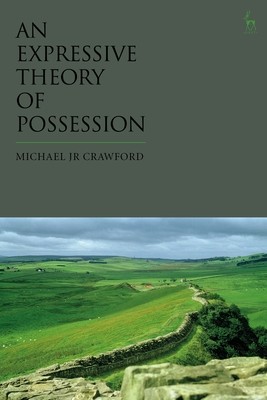
- We will send in 10–14 business days.
- Author: Michael Crawford
- Publisher: Bloomsbury Publishing PLC
- Year: 2022
- Pages: 230
- ISBN-10: 1509944087
- ISBN-13: 9781509944088
- Format: 15.6 x 23.4 x 1.2 cm, minkšti viršeliai
- Language: English
- SAVE -10% with code: EXTRA
Reviews
Description
Possession is a foundational concept in property law. Despite its undoubted importance, it is poorly understood and a perennial source of confusion. Indeed, there is a widely held view amongst lawyers that possession is an irredeemably ambiguous and amorphous concept. This book aims to challenge this conventional wisdom and to demonstrate that possession is in fact far simpler than generations of lawyers have been led to believe.
In viewing possession as a knotty problem for the philosopher or legal theoretician, scholars are apt to overlook the important truth that possession is a concept that laymen routinely and, for the most part, effortlessly apply as they navigate through the countless property interactions that shape everyday life. The key to understanding the nature and function of possession in the law is to appreciate that the possession 'rule' is, first and foremost, a spontaneously emergent phenomenon. Possession describes those acts that, as a matter of an extra-legal convention, constitute the accepted way in which members of a given population stake their claims to tangible things.
Fusing traditional legal analysis with insights from philosophy and economics, An Expressive Theory of Possession applies this central claim to both theoretical and doctrinal problems in property law and, in doing so, provides a coherent explanation of possession and its role in law and life.
EXTRA 10 % discount with code: EXTRA
The promotion ends in 22d.22:09:20
The discount code is valid when purchasing from 10 €. Discounts do not stack.
- Author: Michael Crawford
- Publisher: Bloomsbury Publishing PLC
- Year: 2022
- Pages: 230
- ISBN-10: 1509944087
- ISBN-13: 9781509944088
- Format: 15.6 x 23.4 x 1.2 cm, minkšti viršeliai
- Language: English English
Possession is a foundational concept in property law. Despite its undoubted importance, it is poorly understood and a perennial source of confusion. Indeed, there is a widely held view amongst lawyers that possession is an irredeemably ambiguous and amorphous concept. This book aims to challenge this conventional wisdom and to demonstrate that possession is in fact far simpler than generations of lawyers have been led to believe.
In viewing possession as a knotty problem for the philosopher or legal theoretician, scholars are apt to overlook the important truth that possession is a concept that laymen routinely and, for the most part, effortlessly apply as they navigate through the countless property interactions that shape everyday life. The key to understanding the nature and function of possession in the law is to appreciate that the possession 'rule' is, first and foremost, a spontaneously emergent phenomenon. Possession describes those acts that, as a matter of an extra-legal convention, constitute the accepted way in which members of a given population stake their claims to tangible things.
Fusing traditional legal analysis with insights from philosophy and economics, An Expressive Theory of Possession applies this central claim to both theoretical and doctrinal problems in property law and, in doing so, provides a coherent explanation of possession and its role in law and life.


Reviews